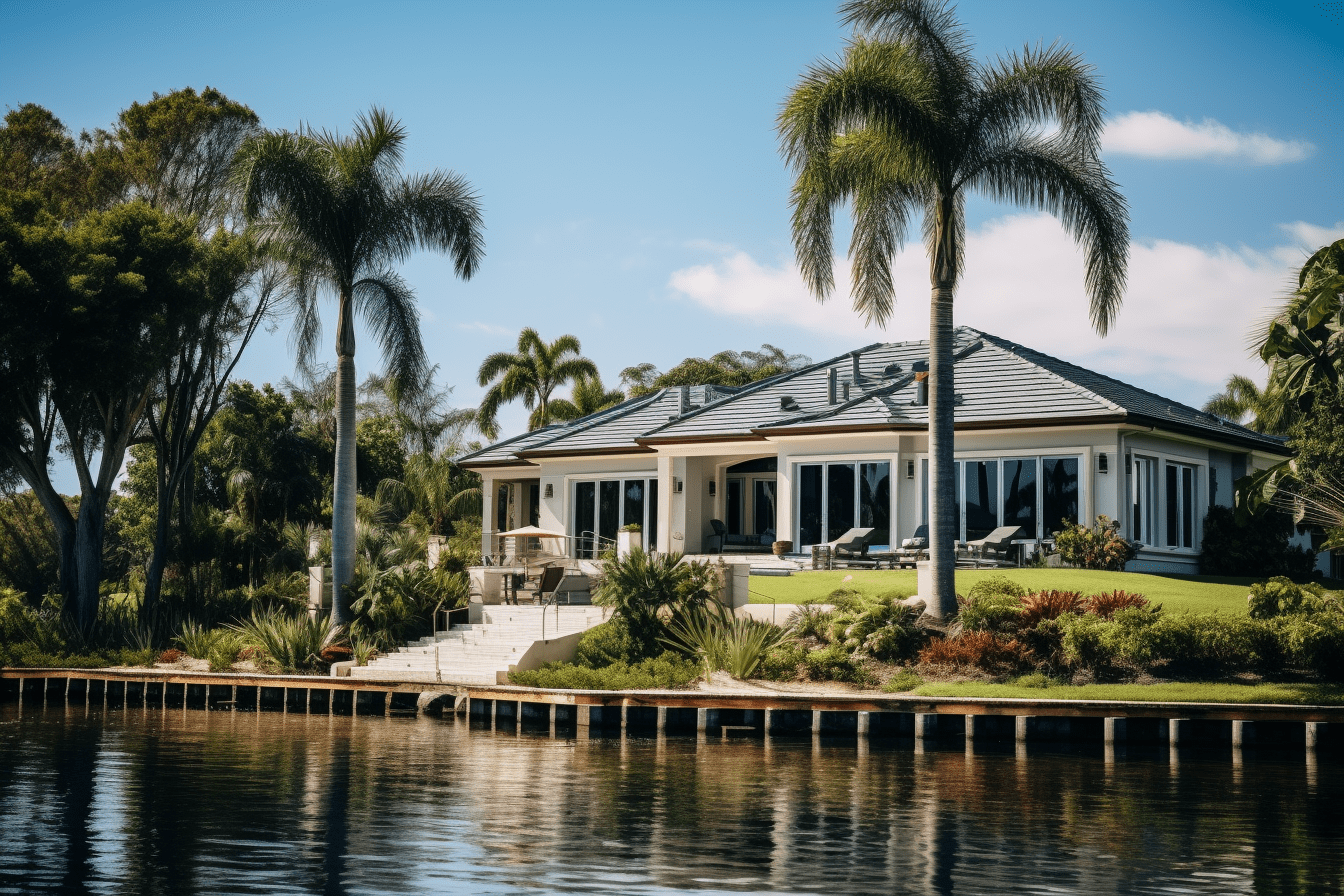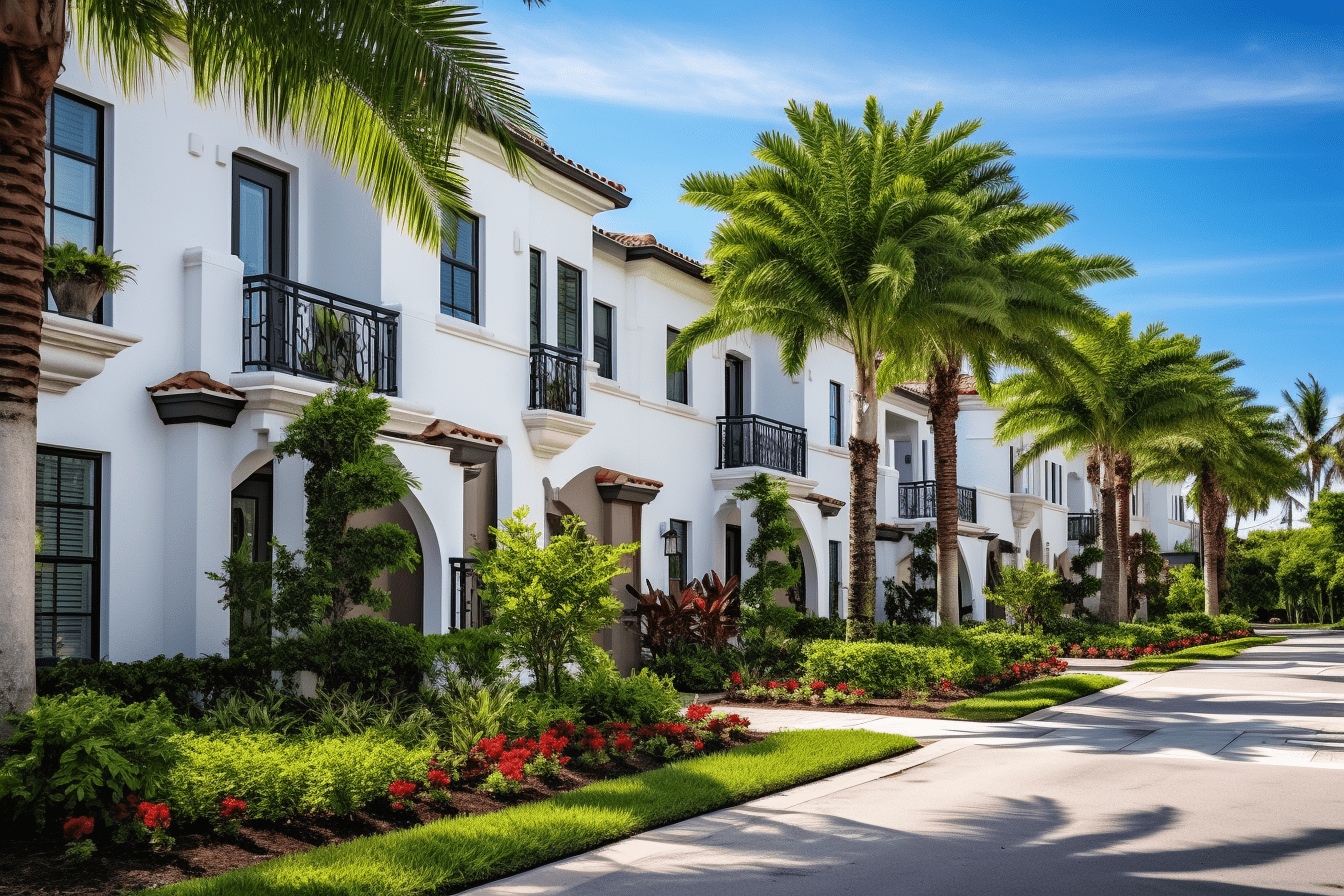A lady bird deed is a special type of deed used to avoid probate. With a lady bird deed, you give yourself an enhanced life estate, which lets you control the property during your lifetime. Upon your death, the property automatically transfers to the beneficiaries listed on the deed.
A lady bird deed is also called an enhanced life estate deed because it is an enhanced version of a regular life estate deed. Unlike a traditional life estate deed, a lady bird deed reserves extra powers for the property owner, allowing the owner to control, use, and transfer the property without the beneficiary’s consent.
Key Facts
- A lady bird deed automatically transfers property upon the owner’s death.
- It avoids probate and allows the owner to control the property while alive.
- There are five states that have lady bird deeds: Florida, Michigan, Texas, Vermont, and West Virginia.
What Is an Enhanced Life Estate Deed?
In Florida, a lady bird deed is officially known as an enhanced life estate deed because it allows you to retain lifetime use and control of real estate while designating a beneficiary to inherit the property directly upon your death. A lady bird deed and an enhanced life estate deed mean the same thing.
The enhanced life estate deed has all the features of a life estate deed. But with a lady bird deed, the life estate interest is “enhanced” by your rights, as the life estate holder, to revoke the deed or sell and mortgage the property. You have complete control over the property while you are alive. A Florida lady bird deed allows you to freely sell, transfer, or mortgage the property without the beneficiary’s consent.
Because the Florida enhanced life estate deed is revocable, you reserve the right to deed the property back to your own name or transfer it to a third party. Your transfer effectively cancels out the lady bird deed and divests the remainderman of their interest.
The key feature of a lady bird deed is the enhanced life estate. Only states that allow an enhanced life estate can have a lady bird deed.
All lady bird deeds create a life estate, but not all life estate deeds are lady bird deeds.
We prepare deeds for clients throughout Florida.
We charge a flat fee for a consultation and preparation of your lady bird deed. Get everything done remotely by phone or Zoom.

Requirements for Lady Bird Deeds
Lady bird deeds are a valid form of property transfer in Florida. The form of the deed must include the following:
- Grantor. The current owner of the property.
- Enhanced life estate. The power to control the property during their lifetime.
- Remainder beneficiary. The person who will inherit the property after the owner’s death.
- Legal description. A formal description used to identify the property.
- Homestead provision. For homestead properties, a paragraph that allows the owner to keep the homestead exemption.
1. Grantor
The grantor of the lady bird deed is the current owner of the property. This person is splitting their fee simple legal interest in the property into an enhanced life estate and a remainder interest.
The grantor must sign the lady bird deed in the presence of two witnesses and a notary.
2. Enhanced Life Estate
An enhanced life estate deed allows a property owner to keep control over the property during their lifetime and transfer the property upon death to a beneficiary. The enhanced life estate holder, also called the life tenant, is the person who has legal control of the property after the lady bird deed is executed. Almost always, the grantor is the life tenant.
This ownership is called a life estate because the ownership ends upon the death of the life tenant. Furthermore, the life estate is “enhanced” because the life tenant retains full power and authority to sell, convey, mortgage, lease, or otherwise manage and dispose of the property. In other words, the owner of the enhanced life estate can freely sell or mortgage the property without the permission of the remainder beneficiary.
The enhanced life estate is the key and distinguishing feature of a lady bird deed. Only states that allow an enhanced life estate can have a lady bird deed. For that reason, a lady bird deed is often called an enhanced life estate deed.
3. Remainder Beneficiary
The remainder beneficiary is the person or group of people who inherit ownership of the property upon the death of the life tenant. The remainder beneficiary’s legal interest vests when the life tenant dies, and the beneficiary has no ownership interest in the property during the life tenant’s lifetime.
Because the property transfers automatically upon the life tenant’s death, the property is not part of the life tenant’s probate estate. The lady bird deed avoids probate.
4. Legal Description
The legal description is the property’s formal identification in the public record. It allows the county, future purchasers, and anyone else to clearly identify the property subject to the ladybird deed.
The legal description is not the postal address: it is a description of the actual land as recorded by the county.
5. Homestead Provision
Most people use a lady bird deed to transfer their homestead to their children. When doing so, it is critical to maintain the property’s homestead exemption.
To maintain the homestead exemption on the property, the lady bird deed should state that the property will remain the life tenant’s homestead.
Advantages of a Lady Bird Deed
A lady bird deed allows a property owner to transfer property upon death while avoiding probate. It is inexpensive, revocable, and simple compared to a trust. Here are some of the main advantages:
- Avoids probate. A lady bird deed allows a property to transfer on death to named beneficiaries without probate.
- Low cost. A lady bird deed can be obtained for a relatively low cost compared to a more complicated and expensive living trust.
- Simple. A lady bird deed does one thing but does it well: it transfers a person’s real property upon the death of the property owner.
- Revocable. The property owner is free to change their mind at any point during their lifetime. The property owner can enter into a new deed that gives the remainder interest to someone else or cancels the lady bird deed entirely.
Disadvantages of a Lady Bird Deed
There are some limitations and disadvantages to lady bird deeds. These include the following:
- Lack of Asset Protection. A creditor of the current owner may place a lien on the property, other than a homestead, conveyed by a lady bird deed.
- Constitutional Restrictions. A person cannot use a lady bird deed to disinherit a spouse or minor child.
- Unexpected Deaths. If the holder of the remainder interest dies before the life tenant dies, it may become unclear as to what happens to the property when the original life tenant later dies.
- Changes to the Estate Plan. It will require extra work for the original owner to change their plan should they later decide not to leave the property to the named remainderman.
Despite the disadvantages, lady bird deeds in Florida are often used as a simple, inexpensive way to transfer their home upon death without probate.
How to Create a Lady Bird Deed
Creating a lady bird deed is straightforward. First, you must sign a deed transferring your property to someone else upon your death. The deed must also include a reservation of an enhanced life estate for yourself. Then, you must record it with the county records office. The county will charge a minimal documentary stamp tax.
After recording the deed, there is nothing else to do. After your death, your beneficiaries will file a copy of the death certificate. Under Florida law, the property will instantly transfer to your beneficiaries.

How a Lady Bird Deed Affects the Homestead Exemption
You do not lose your Florida homestead exemption by making a lady bird deed. Instead, you can retain homestead rights for as long as you live on the property after executing a Florida lady bird deed. Your home will remain exempt from creditors and qualify for a homestead tax exemption.
The lady bird deed should state that the property will remain the life tenant’s homestead to maintain the homestead exemption.
We prepare deeds for clients throughout Florida.
We charge a flat fee for a consultation and preparation of your lady bird deed. Get everything done remotely by phone or Zoom.

Example Use of a Lady Bird Deed
Sally Smith is retired and lives alone in her Florida home. She used to own the property with her husband, but her husband is now deceased.
Mrs. Smith has two adult children. She does not own anything of substantial value besides an old car and some money in her bank account. She wants to make sure that her house goes to her children when she dies in the easiest way possible. She doesn’t want her children to have to deal with probate or hire a lawyer just to get the home. But, she doesn’t want to give up her home while she’s living.
Mrs. Smith executes a lady bird deed for her house, naming her two children as beneficiaries. While Mrs. Smith is still living, Mrs. Smith will still enjoy full benefits of ownership and can freely live in, sell, mortgage, or transfer the home. Once she dies, however, the property will immediately transfer by operation of law to her two adult children. The children will not need to hire an attorney or probate the home.
Difference Between a Lady Bird Deed and Quitclaim Deed
A quitclaim deed transfers the entire fee simple interest in your property to the person named as grantee. A quitclaim deed conveys all your interest in the property to another person immediately upon execution of the deed.
Unlike a quitclaim deed, a lady bird deed does not transfer your entire property interest. A lady bird deed retains part of your property rights and ownership as an enhanced life estate during your lifetime. In other words, a Florida lady bird deed functions as a quit claim deed that becomes fully effective after your death.
Sometimes a quitclaim deed may be more appropriate than a lady bird deed if the property owner wants to refinance debt and use the grantee’s credit, or if the grantee already lives in the home.

What Is a Transfer on Death Deed?
A transfer on death deed automatically conveys your property to someone else when you die. You cannot undo or modify a transfer on death deed unless the other person agrees.
Florida does not have transfer on death deeds because Florida has not adopted the Uniform Real Property Transfer on Death Act. This law would allow people to use a transfer on death deed for their property.
A transfer-on-death deed is often used as a will substitute, as it allows people to efficiently transfer their homes to their designated heirs without the cumbersome and expensive probate process.
A Florida lady bird deed accomplishes the same thing as a transfer on death deed. A Florida lady bird deed automatically transfers property ownership via deed upon the current owner’s death.

Using a Lady Bird Deed for Medicaid Planning
A lady bird deed lets you keep Medicaid benefits. It transfers the home after your death, and it is not counted by Medicaid if it’s your homestead.
In Florida, a person’s homestead is protected from creditors with few exceptions. Medicaid cannot look to the homestead for collection.
Medicaid can collect from non-homestead properties the amounts paid for care during the owner’s lifetime. Medicaid can assert a claim against assets in a person’s probate estate.
A lady bird deed transfers property after death outside probate, so it is not part of the decedent’s probate estate. In this way, non-homestead properties transfer automatically outside of the probate estate and are protected from Medicaid claims or any other creditors.
A lady bird deed can be a useful tool in Florida for people who qualify for Medicaid and are concerned that the government will take non-homestead properties after their death to pay for their medical expenses during life.
Note that the property owner must still qualify for Medicaid during their lifetime, and the lady bird deed does not affect the qualification rules.
We prepare deeds for clients throughout Florida.
We charge a flat fee for a consultation and preparation of your lady bird deed. Get everything done remotely by phone or Zoom.

What Happens to a Lady Bird Deed After a Civil Judgment?
Lady bird deeds are subject to different considerations if a money judgment has been issued against either you, the current owner, or your designated remainder beneficiaries.
Judgment Against the Life Estate Owner Can Affect the Property
In Florida, a lady bird deed does not protect your real property from creditors, other than your homestead, if there is a recorded civil judgment against you. A judgment becomes an automatic lien on all your real property in any county in which the judgment is recorded. Your homestead is an exception because it is exempt from levy and forced sale.
A judgment lien would automatically attach to any non-homestead property that you had conveyed in a lady bird deed. The judgment lienholder could foreclose the lien on your property, notwithstanding the prior lady bird deed. This property is considered your asset until your death when the lady bird deed transfers title to other beneficiaries.
Effect of a Civil Judgment Against Your Designated Remainder Beneficiary
A civil judgment against a named remainder beneficiary of a lady bird deed does not affect your interest in the property during your lifetime. This is because the remainderman’s interest in the property does not vest until your death.
Therefore, the judgment cannot attach to any legal interest as long as you are alive. A judgment against a remainderman of a lady bird deed does not affect your property ownership.
Tax liens are different. An IRS lien against a remainder beneficiary attaches to the property as soon as the beneficiary is named on the lady bird deed.

Frequently Asked Questions
How does a lady bird deed work in Florida?
A Florida lady bird deed allows you to transfer real estate to another person upon your death without probate. Two witnesses and a notary must sign the deed, which is recorded in the county public records.
How much does a lady bird deed cost?
In Florida, a lady bird deed costs $500 or less. You should expect the attorney to discuss the deed’s advantages and disadvantages with you and ensure that it is consistent with your overall estate plan. The attorney should also advise whether your other estate planning documents, such as a will, health care directive, pre-need guardian designation, and living will, are appropriate.
Is a lady bird deed a good idea?
In Florida, a lady bird deed if you want to avoid probate for your home. Using a lady bird deed may not be a good idea if there are civil judgments already entered against designated beneficiaries.
Is a lady bird deed better than a living trust?
A revocable living trust may not be required when the only property to be transferred via the living trust is a homestead. A living trust is the better estate planning option for people with significant assets other than their house.
Does a lady bird deed have to be recorded?
A lady bird deed must be recorded to be effective. Once the property owner executes the deed, it should be recorded to document the conveyance as part of the property’s legal chain of title. Recording the lady bird deed should not involve significant documentary stamp taxes, even if the property is mortgaged.
How do you change the beneficiaries on a lady bird deed?
A property owner can change the beneficiaries under a lady bird deed even after the original lady bird deed is recorded. The owner must execute and record a second lady bird deed that names the new person or people whom the owner chooses to inherit the property.
What has to be done with a lady bird deed after your death?
After the death of the life estate holder, the lady bird deed automatically transfers ownership of the property to the remainder beneficiaries. The remainder beneficiaries should record a copy of the death certificate in the county where the property is located. Then, the beneficiaries could contact the property appraiser so that the public records are updated with the names of the new owners.
Does a lady bird deed supercede a will in Florida?
Yes, a lady bird deed does supersede a will in Florida. A will only applies to property that is part of the deceased person’s estate. Property subject to a lady bird deed automatically transfers upon the owner’s death, so it is not part of the deceased person’s estate.
What are the tax consequences of a Lady Bird deed in Florida?
Transferring property by lady bird deed does not trigger a gift tax. The transfer is not a completed gift during the lifetime of the property owner.
In addition, the beneficiary of the lady bird deed should still enjoy a step-up basis in the property. A stepped-up basis means that if the beneficiary eventually sells the property, the beneficiary will pay income tax only on the appreciation in value from the date when the original property owner died.
What is the difference between a Lady Bird deed and a trust?
Both a lady bird deed and a trust avoid probate. However, unlike a lady bird deed, a trust can transfer any real or personal property to beneficiaries outside probate. A lady bird deed only deals with real property.
Can you get insurance with a lady bird deed?
Most major title insurance companies in Florida fully understand lady bird deeds and are not concerned about insuring the title of a property subject to a lady bird deed. A title company should not require the signature or consent of the people listed as remaindermen (designated beneficiaries) when the enhanced life estate owner sells the property because the beneficiaries have no vested property interest.
Some smaller or less experienced title insurance companies may not understand a lady bird deed and may require the remaindermen to sign a release. Even worse, the companies may require any judgment holders against the remaindermen to release any claim of lien against the properties. These requirements stem from a lack of understanding about how lady bird deeds work.
Property insurance is typically acquired in the grantor’s personal name prior to executing a lady bird deed.
Does a lady bird deed avoid probate?
Probate is a legal process by which a court assembles all of a deceased person’s assets in a “probate estate,” determines if any creditors have claims against the deceased person, and then distributes whatever is left in the probate estate after paying creditors according to the person’s will. Florida law requires that an attorney be involved in formal probate. Probate is both expensive and time-consuming for a family.
A lady bird deed avoids probate because the property title automatically transfers to the remainderman by “operation of law.” The subject property is not part of the decedent’s probate estate.
Can I do a lady bird deed myself?
You can file and record a lady bird deed yourself without an attorney. However, the county will not review the deed format or legal description and will not tell you if it was done correctly.
How long does it take to get a lady bird deed?
About 1 week. You have to prepare the deed, sign it, and record it with the county.
Sign up for the latest articles.
Get notified by email when we publish a new article about asset protection law and strategies.
Please enable JavaScript in your browser to submit the form
Publisher: Source link












